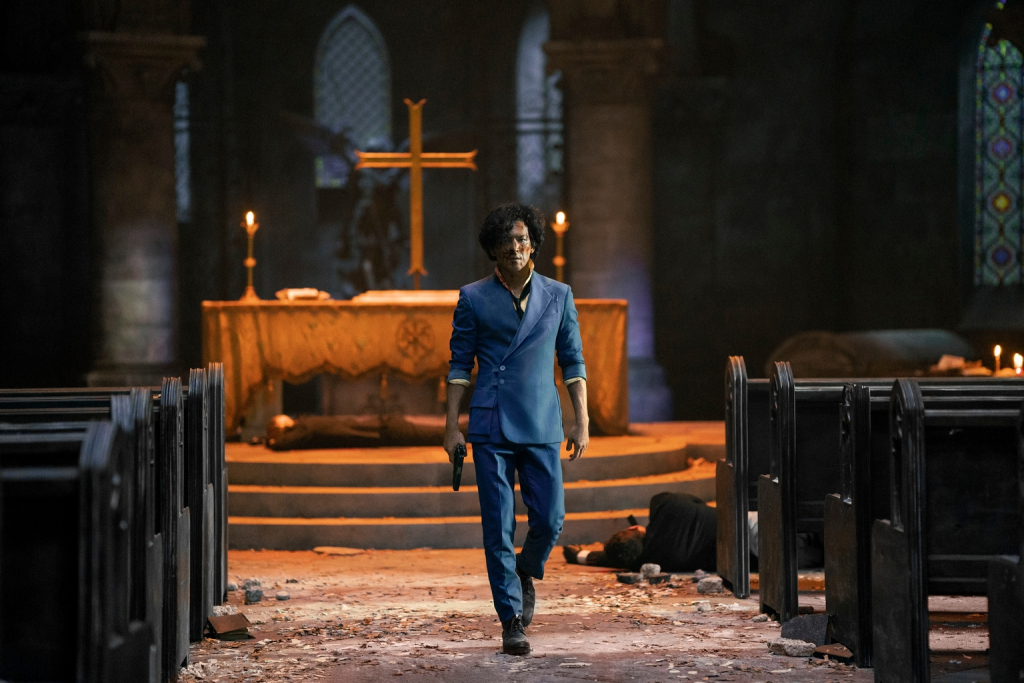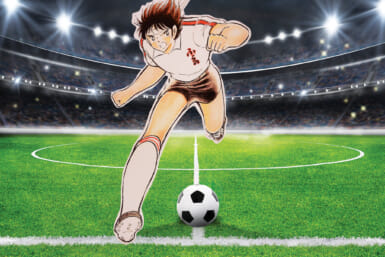Is Netflix’s live-action Cowboy Bebop (2021) a faithful adaptation of the 1998 anime? No. Absolutely not. It mostly looks the part but with all the things it gets wrong, the set pieces and the costumes feel more like cosplay rather than parts of an authentic sci-fi world. Yet there was one part of the show that understood an often-overlooked part of the original animated series. Its anti-capitalist tone. Cowboy Bebop doesn’t attack capitalism as openly as other recent Netflix shows like Squid Game but it’s there. And it’s persistent.
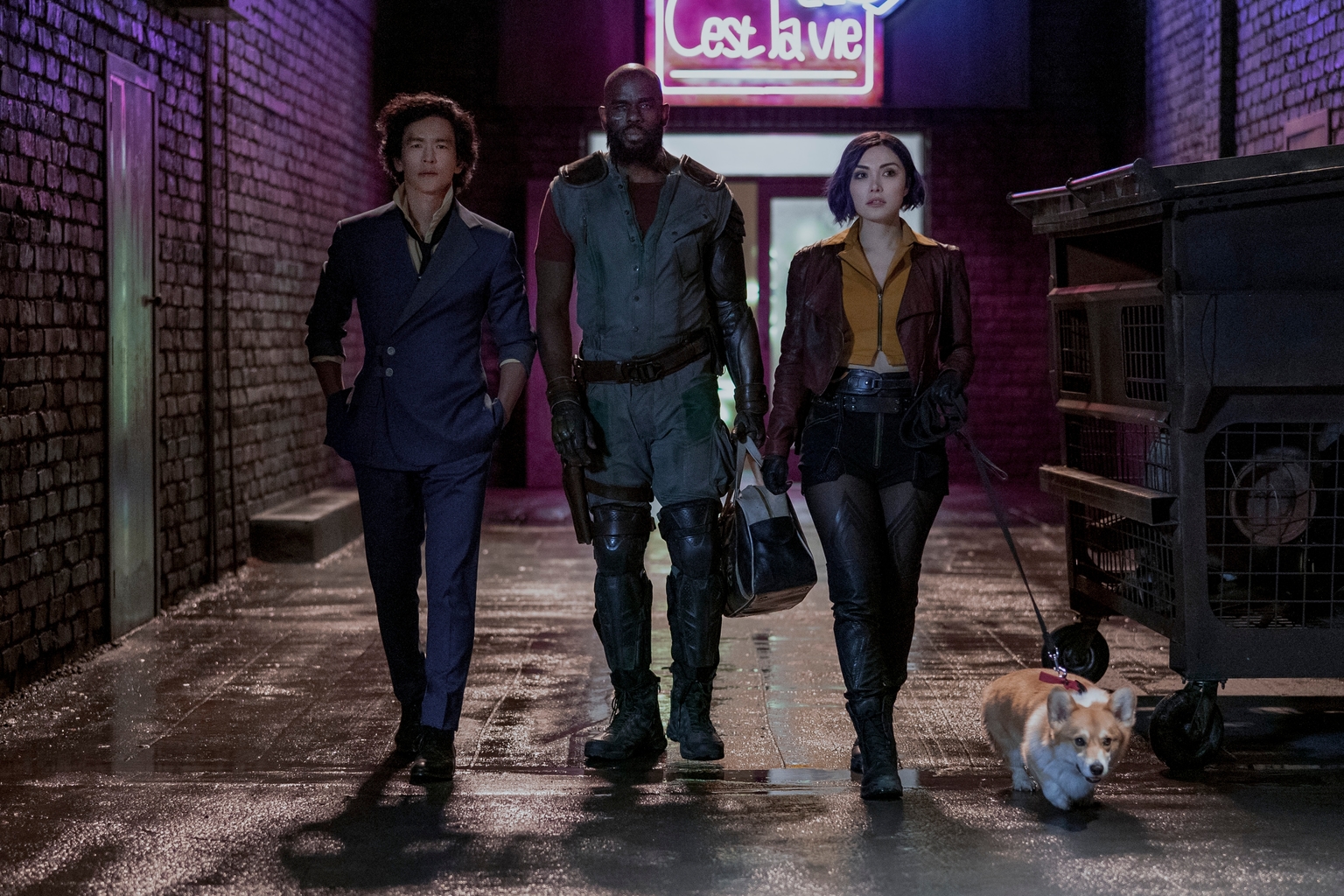
Photo credit: Geoffrey Short/Netflix
The Wrong Notes the Live-Action Cowboy Bebop Played
Spike (John Cho) and Jet (Mustafa Shakir), a pair of space bounty hunters and the show’s protagonists, never feel like actual friends. Worst of all, they are way too OK with killing people and can be needlessly cruel during the pursuit of their bounties. Spike in particular feels really off. He seems to be on edge in most episodes whereas the original character had an almost Zen-like calmness to him because he was living on bonus time after being “killed” once.
The dialogue also leaves a lot to be desired. It has an annoying tendency to awkwardly jam the word “cowboy” into the characters’ lines wherever possible. It’s a pretty standard but still regrettable example of the show not understanding the filmmaking rule of “show, don’t tell.”
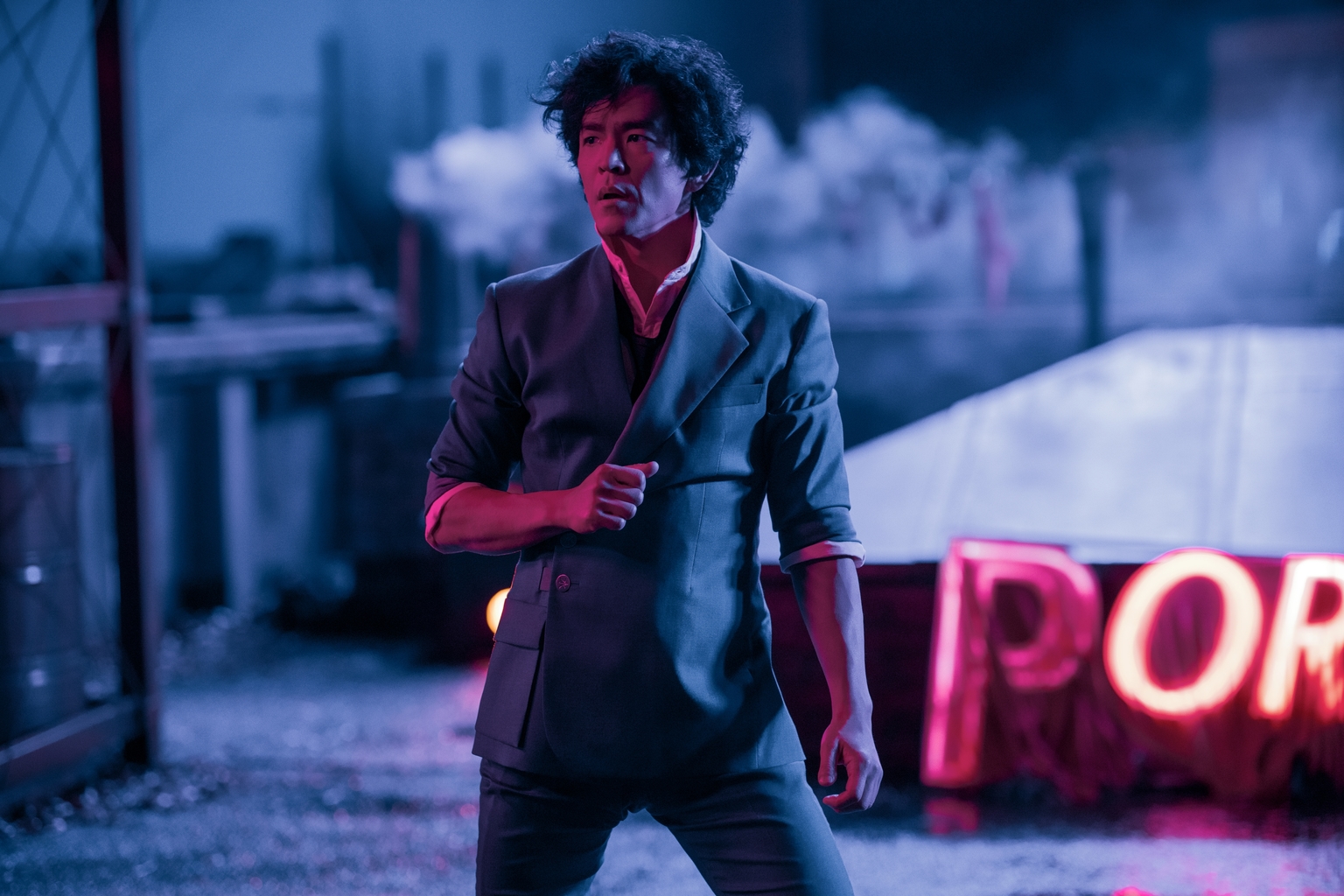
Photo credit: Kirsty Griffin/Netflix
The Anime’s Soft Dystopia of Greed
At least the Netflix adaption understood the anime’s anti-capitalist tone, which is so often ignored. After the opening credits of the first episode of the animated series, there is a beautiful, long-spanning shot of space stations and ships flying through the Astral Gates, which allow travel between planets in the solar system within hours. The scene is drawn out so one can marvel at these grand technological achievements. However, the feeling is instantly ruined when Spike and Jet’s ship Bebop passes through the gate and we see how it automatically deducts money from their account. In this world, the awe-inspiring Astral Gates are essentially highway tollbooths. No one on the show looks at them with wonder. They look at them as another way for corporations to squeeze money out of the working man.
The world of the Cowboy Bebop anime can be best described as a soft, mundane dystopia.
Yes, you can be born on Mars and travel from planet to planet, provided you work hard enough for too little pay at whatever menial job you can get your hands on. Cowboy Bebop is not Star Trek where the basic needs of every human are automatically met so they can focus on exploration and other higher pursuits. It’s a dark mirror of the modern world, proving that no matter how far we go, there’s no escaping capitalism.

Photo credit: Geoffrey Short/Netflix
The Live-Action Show Sets the Right Tone Within the First 20 Seconds
The first piece of dialogue in Netflix’s Cowboy Bebop is a speech about corporate greed and how the rich and powerful control our access to food, medicine and fuel needed to traverse the solar system. This shows a remarkable understanding of an integral part of the anime. And one that’s rarely talked about because it’s quite subtle.
In the live-action Cowboy Bebop, the anti-corporation and anti-capitalist thesis is out in the open. But, at the same time, it doesn’t feel like it’s being forced down our throats. That’s because it’s delivered by an unlikeable casino robber and murderer who later gets battered by Spike and Jet. Yet after a few episodes, you will find yourself largely agreeing with the bad guy. It’s a rare instance of clever writing on the show.

Nicola Dove/Netflix
When Fighting Monsters, Beware You Don’t Become One
When you consider all of the above, it makes you more forgiving of Spike and Jet’s callousness and insensitivity in the live-action series. In the anime, they were always scrambling for money but never obsessed with becoming rich. They just wanted enough cash to put beef in their stir-fry and keep flying to be free. In order to do that, they turned to hunting humans.
In the anime, bounty hunting was turned into a sport or a game where TV hosts in silly costumes talked about prices put on human heads with disturbing gameshow-like smiles and “funny” little skits. The animated Spike and Jet were a part of that dehumanizing world. Thankfully, it didn’t make them insensitive to the suffering of others, but it easily could have. And that’s apparently what happened in the live-action Cowboy Bebop series. It may not be exactly like the anime, but it’s an interesting extension of a theme that was very much there in the original show.
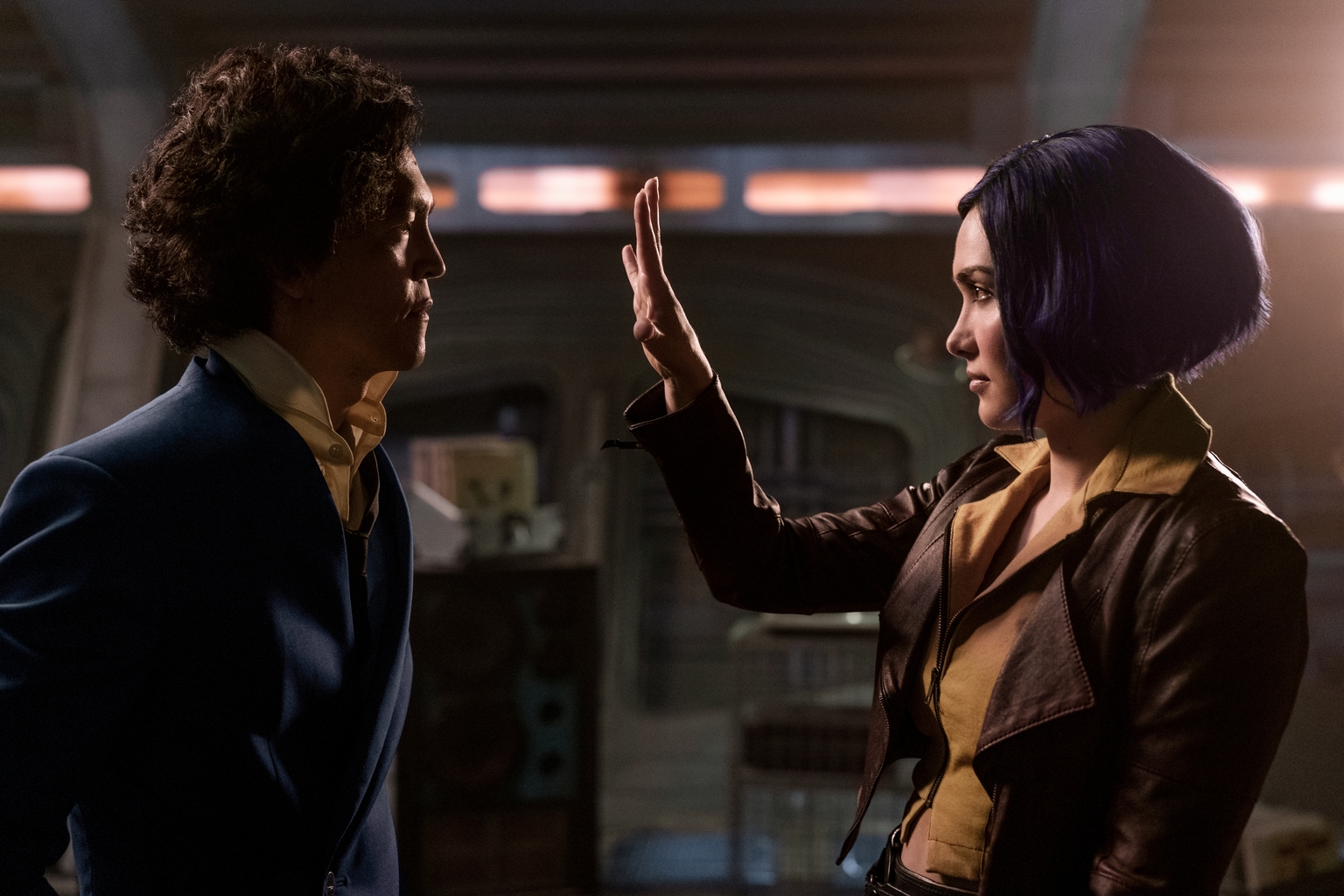
Photo Credit: Geoffrey Short/Netflix
Is the Live-Action Cowboy Bebop Worth a Watch?
There is a lot to like about the Netflix adaptation. It kept parts of the anime that really worked such as the music, the setting and the anti-capitalist themes. It even updated some elements. Namely, Faye Valentine, who feels like a much more three-dimensional character in the live-action version.
If you’re a diehard fan of the original, you’ll probably hate the adaptation. It will feel off and frankly, unneeded. But those coming into the show blind or those who were just casual fans of the anime will find something in the new Cowboy Bebop to keep them watching.
Read more:

